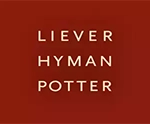(Washington Post: Published 08/17/2015, Dennis, Brady, Web)
The Food and Drug Administration has sent warning letters to manufacturers of a specialized medical scope that has been associated with outbreaks of a deadly “superbug,” saying the companies failed to adequately report problems with the devices and, in some instances, failed to ensure that they could be cleaned properly between uses. The warnings come after the devices, known as duodenoscopes, have been linked in recent years to outbreaks of tough-to-fight bacterial infections involving carbapenem-resistant Enterobacteriaceae, or CRE.
A recent outbreak involving contaminated scopes at Ronald Reagan UCLA Medical Center in Los Angeles left at least two people dead, and officials said scores of other patients potentially were exposed to the dangerous bacteria. At Cedars-Sinai Medical Center, also in Los Angeles, officials this year said four patients had been infected by a superbug after undergoing a duodenoscope procedure. A Connecticut hospital said it had contacted nearly 300 patients who might have been exposed to a dangerous type of drug-resistant E. coli after undergoing duodenoscope procedures. Such incidents prompted the FDA in February to alert doctors and hospitals that duodenoscopes can be difficult to sanitize between uses and “may facilitate the spread of deadly bacteria.” Since 2012, other outbreaks have occurred at Advocate Lutheran General Hospital near Chicago, where 44 people were infected, and at the Virginia Mason Medical Center in Seattle, where at least 32 patients became ill and 11 died.
The FDA last week sent warning letters to three major manufacturers of duodenoscopes — Olympus, Pentax and Fujifilm. In particular, regulators cited Pentax and Olympus for failing to inform the FDA that their scopes might have “caused or contributed to a death or serious injury” with 30 days of learning about the incidents. The agency also cited Pentax and Fujifilm for failing to validate their detailed instructions for cleaning the scopes. The FDA said the companies failed to report problems with the scopes as required by law and in some cases failed to ensure that the devices could be adequately cleaned.
Duodenoscopes are used in hundreds of thousands of procedures each year in the United States to drain fluids from pancreatic and bile ducts blocked by cancer tumors, gallstones and other conditions. Doctors consider them a key tool in detecting and treating medical problems early and in a minimally invasive way, and regulators and industry officials alike have argued that the benefits of duodenoscopes far outweigh the risks.
The lawyers at Liever, Hyman & Potter, P.C., are concerned for the safety of families in Reading, Berks County, PA, Pottsville, Schuylkill County, PA, and throughout Eastern and Central PA. The lawyers there handle personal injury claims, including claims for injuries or death caused by unsafe or dangerous products.
From the desk of Adam K. Levin, Esquire.

